“If you were a person of colour, you were less than human”: Director Jeymes Samuel and his cast on redefining the Western genre with new film The Harder They Fall at London Film Festival 2021
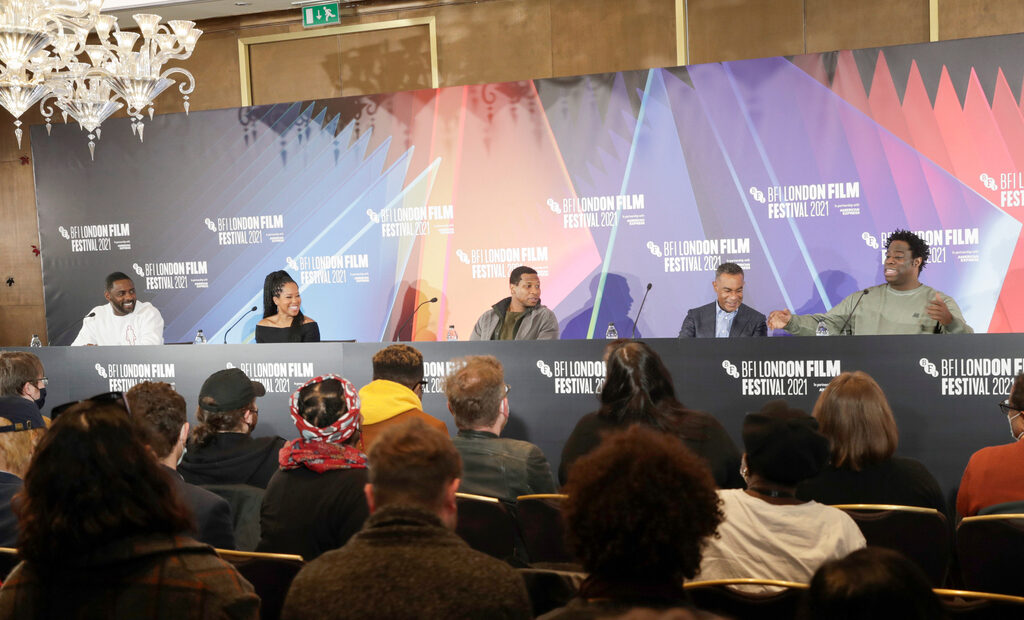
There was a jubilant feeling in the room as the cast and director of The Harder They Fall took their seats for the Opening Gala press conference for the 2021 London Film Festival. And it wasn’t only a reaction to the thoroughly entertaining and visually arresting film Jeymes Samuel has put together. It’s been a long road to the cinema industry getting back on its feet post-pandemic, and the sense of joy in being able to celebrate this groundbreaking reinvention of the Western finally hitting the big screen – and in person at the London Film Festival no less – was palpable.
In attendance were London-born filmmaker and musician Samuel, who spoke about his inspiration for the film and assembling his dream all-Black cast, plus some of the stars who play his fictionalised incarnations of real-life Black gang legends of that era: Idris Elba (who plays the notorious outlaw Rufus Buck), Regina King (who portrays the fierce Trudy Smith) and Jonathan Majors (the man behind the vengeful Nat Love), who all talked about why they wanted to work with Samuel how they viewed their respective characters.
The director kicked off by explaining why he was drawn to the Western genre: “Growing up I was always watching Westerns. I love cinema, I’m a cinephile – but the genre of the Old West was always just alluring to me. But I’ve always said the scope that they showed us those stories through was really narrow. They didn’t really leave way either side for any other interpretation. Women of all colours were always subservient. If you were a person of colour, you were less than human. So although I loved the genre so much, it just made me want to do more with it and broaden the scope.”
His star-studded cast then shared why they wanted to be in the film, starting off with Elba: “There was no ‘yes’ or ‘no’ or ‘maybe’, just ‘you’re doing it’. James and I have known each other for a long time – and, yes, there’s definitely a uniqueness to a man from London, from the Harrow Road; we grew up together doing stupid shit and here we are making a Western! I grew up watching Westerns – Bonanza, a lot of Bonanza! My dad loved that, and to have this moment to almost redefine the genre in this way is definitely special. So I was on board from day one.”
Regina King also spoke about what appealed to her: “For me… I am not a fan of Westerns – it was Jeymes. I met him over FaceTime and when he just expressed his vision – he even picked up his guitar and started playing some of the music he had written already – and just the way he described the shots and how the music would play with the images… It’s like Jeymes thinks in music, you know? And so, I was like, ‘Well, gosh, if Westerns were like this, maybe I would like Westerns?!’. And I was going to have the opportunity to work with Idris again – and it’s been quite some time since we’ve got to dance together – so that’s what sold me.”
Majors provided some insight to how his background led him to the role of Nat Love: “The Western was something I did grow up with watching. My grandfather used to watch it, my father, my parents. But I also kind of lived in a Western. I grew up on a farm. I grew up also in the city but I grew up around horses, I grew up around shotguns, I grew up around hot sun and all the elements. And I think when I first read the script I thought, ‘Okay, well, I don’t think we’ve seen this before,’ though I’ve lived it. I guess I was 29 when I first read the script. I’m 32 now, so there’s that. And I thought, ‘Okay, this is an opportunity.’ And then again, just like a little bit of Regina and a little bit of Idris – I knew Idris was attached to it. So I thought, ‘Okay, well, we got something going on here.’ And then I, too, spoke with Jeymes. And Jeymes does live and speak and articulate life through a Western. There’s something about the danger of a Western, something about the feral grind of the nature of a Western, you know? You’re in the nature, you’re dealing with some real morality, you’re dealing with some real fate. You’re on the frontier, and you’re trying to figure it out. And I was excited to try to jump into that.”
Samuel went on to explain how he put together his “dream” ensemble cast: “Things chop and change and, you know, Covid, and scripts change, the characters – but this version, of this movie, was this cast. When Jonathan Majors was cast to play Nat Love, I hadn’t seen anything that he was in. Nothing. I hadn’t seen anything. I didn’t ask him to read for the script. In fact, he was doing an interview for White Boy Rick. And he was talking about his process and how his process was helping another actor in the movie, and he broke it down and I saved that interview and I showed it to Jay-Z, and I was like, ‘That’s Nat Love…it’s him’. Then Idris and I go back like the blue can of Dax. We go back like Jacob’s Cream Crackers. Me and Idris go back since Dot Cotton and Nick Cotton were running Eastenders… and we were always talking about cooking The Harder They Fall. The whole thing is poetry beyond words… the whole thing is serendipitous.”
King shared what won her over when Samuel finally plucked up the courage to pitch her the role of Trudy, opening his call with “Peace to the Black queen!”: “It was enthusiasm and his clarity. We talk about first-time directors – there’s nothing first-time director-y about Jeymes. I’ve seen directors or worked with directors who’ve been doing this much longer than Jeymes and not had the clarity he has. He’s lived, breathed, every single shot before any of us came to the table and it came through. He was very clear that he’s a collaborator. I like to be a part of projects where it’s collaboration. I’m not really interested in ‘my, my, my, me, me, me’ type of thing, because it’s impossible to tell a story without all of the storytellers. While he was so clear and so confident, it wasn’t conceit and I wanted to take that ride with him. I was like, ‘Either we’re going to go hard and go to sky’s the limit, beyond the sky, or we’re going to crash and burn together.’ And we didn’t do the latter.”
She also spoke about the contrast in the film to the way women are usually depicted in Westerns and period dramas: “The thing that’s so unique about this piece is that Cuffee, Stagecoach and Trudy are so different, but their existence is not based on any man, or a child, or a parent, or some story that has to connect them to something else, other than them being who they are. And to have three women that are so different but so sure and still have those layers, not be one-dimensional, was exciting to see. And then for a man to have been the one to write it makes it even more special.”
Elba then reflected on his character of Rufus Buck: “Some of these characters were real people. Rufus Buck interestingly was very young at the height of his reign – he was probably about 20 or 19. He was a biracial man, Black and a Native American, and his gang looked like somebody kind of Bugsy Malone… so I really had that to look at and thought about Jeymes’s re-imagination of it, and it became super appealing because here I was allowed to sort of bring this character to life and place him into Jeymes’s universe. So he’s a ruthless guy, but he’s also a guy that essentially is progressive in thought. Rufus is about at a time where Black people were being not only marginalised but moved from town to town, and not allowed to stay in the major towns. This was a man that was trying to create a town and a safe space, albeit doing it ruthlessly. He had some substance to him in this film. So that was appealing. Also having an opportunity to work with Regina again – and Trudy is such a formidable character. I remember one of the first conversations Regina and I had was that it’s interesting that there isn’t a romantic slant to this character or this relationship. We celebrated that as actors, as we started to develop, because it just meant that we were head-to-head. Literally there’s a moment in the film where I put my head on her head, and that came from an improvisation. But it was also a sort of a nod to the equality of our characters and how they stand in this film and that was really touching and moving and different.”
Majors shared his insights on his character of Nat Love: “The interesting part about Nat is when I read the script… We don’t meet the man, Nat Love, until maybe seven pages in. But for me the most important part of Nat Love is what happens in those first seven pages, of course, as our prelude to the film. And you see a young boy who’s ten years old, who witnesses one of the most horrendous things any human being could experience: the violent death and murder of his mother and father. And so that let me know off the top, ‘We’ve got a long way to go’. We’ve all heard the phrase, ‘Heal the boy, save the man’ – you know, ‘Heal the girl, save the woman’ – that was the mission. And then we were in the West. So the most interesting part about the process was what happened between ten years old and 33? What happened to him? How did he become this man? Well, first off, he survived. And so how did he survive? So the trauma that he had had to be healed. And he had to heal that by getting what he needed. He lost love, he lost protection and something unfair happened to him. It’s so interesting that you say equality, because that’s kind of the driving force for Nat. I remember writing on my script, ‘I just want to make it even’.,, which is why when we get to the to the end of our story, that inner conflict is so real and so raw because what Rufus has done, by all accounts, is fair and now there’s reckoning – an internal reckoning. And then there’s the horse ride and there’s the guns and then there’s all those things. But all of that was fuelled by that pain, that discomfort to make it even: ‘You’ve put me all the way down the hill at such a young age and I’ve got to get back up top to be whole.’ So that was the internal work and preparation for it.”
Samuel also made reference to Covid, which almost halted the making of the film when Idris Elba was hit with the virus, remembering when it first happened: “There was this narrative that Black people can’t catch Covid like for a split second. Then Idris, the Blackest of the Blackest, came down with Covid. They were like, ‘Idris was so Black he didn’t even catch Covid-19, he caught Covid-20!’ We always say racism would end if there was an alien attack – Covid is an alien attack, it’s a virus, it doesn’t even want you to die. It’s like War of the Worlds. It wants you to stay well so it can multiply. And if there was ever something to eradicate the human condition of differentiation, conflicts, because of skin colour, it was this worldwide pandemic we were thrown into the midst of. That was the biggest unifier I’ve ever seen. We’re all actually here in masks – everyone’s trying to duck that ‘rona! – like, that’s the biggest unifier I’ve ever seen.”
Elba further responded to a question about the multiplicity of Black stories and on the power of storytelling to overcome racist narratives: “Stories are stories are stories. The consumer of a story now – the lens is so wide, the spectrum is so wide. You can get stories from anywhere. It’s hard to categorise what kind of ‘Black’ story it is… I think that’s healthy. I think you’re right this pandemic has shown we’re all human. Racism is pretty stupid, it feels stupid now. Obviously systematic racism that sits in our system we know will take a while to get out. But in terms of storytelling, it’s a great day for us.
To which Majors wanted to add something he suggested was “slightly controversial”: “I think that’s progress. That’s progress that we can all be one. That the pandemic has put us all as a human species in the same bucket. But when peace comes, when there is no enemy, unfortunately – I’ll speak from my experience, from my way growing up – we do have a way of separating ourselves. We’d label ourselves. I’m African American. You’re light-skinned, I’m dark-skinned. We do do that. That’s Rufus Buck’s game, that’s Nat Love’s game. We do separate ourselves. I think it’s through storytelling, through the progress of seeing the separation, seeing what brings us together, and in most cases it’s a very spiritual conflict… that, to me, is progress. I do think it is a malfunction of human beings that we do separate ourselves. However, it is something that we do, and what makes you more human, what allows you to move forward, is the telling of stories. We do have these separations because of this tribalism and inherited separation, but we overcome it in the film; we overcome it in storytelling. And that’s all I say.”
King explained what draws her to a role: “I think for me, Idris and I, we tend to mirror the same sentiment. A lot of times, as far as a character is concerned, if it’s not rooted in heart then I’m not interested as an audience member. And I’m reading something as an audience member first, whether it’s a comedy-drama or whatever, if there’s heart to it, that’s what keeps you there. And then, as far as real people, we are all, all of us in this moment, the result of the circumstances that happen in our lives. And because of that we are all very complex – we’re not Black or White, we’re a spectrum. And it’s important to make sure that exists in the character that I’m playing because they are real. That’s really the point of storytelling, so that people can become a part of the story. Maybe they’re leaving like, ‘Wow I never saw something from that perspective’. There’s no way for Rufus and Trudy to just be ruthless, there’s no way for us to meet them when we do, if that’s all their life was. So there’s a love story there. There’s the love story that Trudy shares with Stagecoach, you know? All of it comes from the heart.”
Elba added: “One of the hardest things about doing a Western is not doing Western acting – I think there’s only one moment I do some Western acting when I ride in on the horse, I had to do the eye squint! We encouraged each other to get deeper under the skin with these characters. I would be as bold as to say that I think that my performance would be different had we not gone through the pandemic. There’s something I know that changed within us, and matured within me as an artist that informed Rufus, but especially in terms of the compassion and in terms of the ruthlessness and what that looks like on camera. On the page, he’s scary. But we wanted to dig deeper than that and figure out who’s underneath that. And I really do think that considering what happened to us in the pandemic… it gave us an opportunity to really think about what we’re doing here. We were told right there that this movie is gonna stop, right? Here we were thinking that the world was going to die, this was a virus that was going to kill us all. But we stood back up and I was thankfully healthy and well and it really gave me a life-changing perspective. So I think I ended up injecting some of that maturity at least into that character.”
Samuel also spoke about working with the one and only Jay-Z, who was a producer as well as behind the soundtrack: “Working with Jay is just like breathing. He’s really giving and generous, much like everyone here; he’s really a generous collaborator. But an interesting thing with Jay is he’s super silly literate. So we were working a lot of times on the story and filming that kind of stuff as much as – or more than – music at times. Like, I think people see the name Jay-Z and they automatically assume it was music. But it wasn’t… He’s a real film fan, and he’s as knowledgeable about Westerns as someone else – and just filming in general. I think if you look at his discography from the beginning, on his first album there Al Pacino references… His music has always been like cinema. And then there’s other times where you just marvel. He doesn’t use a pen. So even when we’re writing… we co-wrote the title track together, The Harder They Fall, and we were on the last verse. And when I’m writing, I use a pen because I cannot remember the line I wrote literally 33 seconds ago. And he’d be looking and you can see frustration building up… He just stores all of this information in his head.”
Samuel also described how the collaboration with Netflix came about: “We have to embrace the times. People watch things on small-screen more than they ever have. I don’t make a film for people to watch on their phones – not even their IPads. But I think what Netflix has done is brought film and entertainment around the world in a way that it wasn’t before. Everyone can experience the same thing at the same time. Everyone here is in England so you all know my pain. Remember the days a film would come out in America and you had to wait to see it? Six months! Damn the UK release date! Then there’s Netflix, which blasts it around the world at once. You can’t ask for a better place. Also I don’t know if another studio would have made The Harder They Fall to this level, and they embraced it and doubled down – in the pandemic when other films were getting shut down, Netflix doubled down: ‘You are definitely going to make this movie’. They went super, super hard.”
Sarah Bradbury
Photo: John Phillips/Getty Images for BFI
The Harder They Fall is released nationwide on 22nd October 2021.
Read our review of The Harder They Fall here.
Read more reviews and interviews from our London Film Festival 2021 coverage here.
For further information about the festival visit the official BFI website here.
Watch the trailer for The Harder They Fall here:




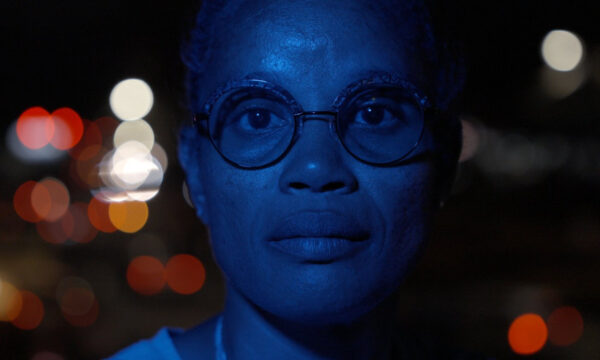
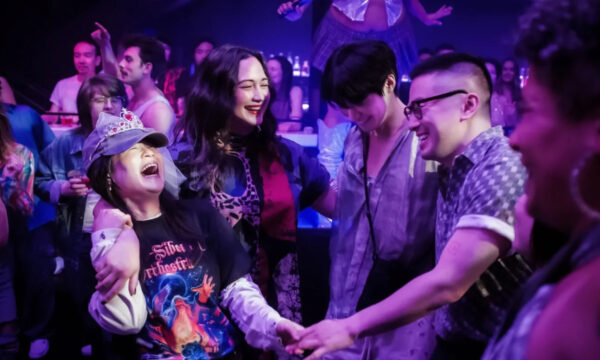
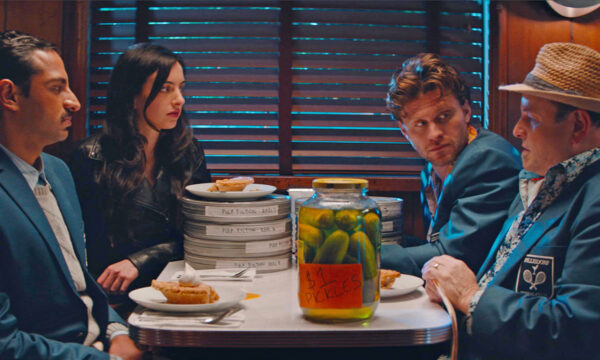
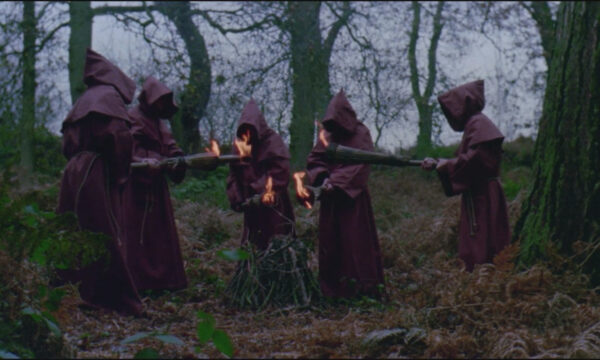
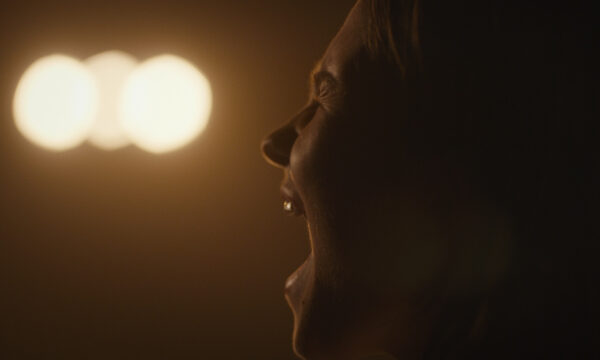
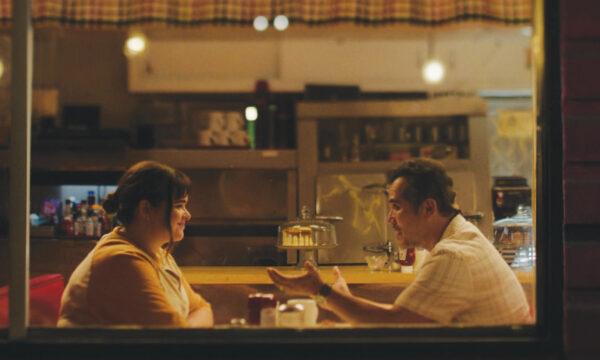









Facebook
Twitter
Instagram
YouTube
RSS